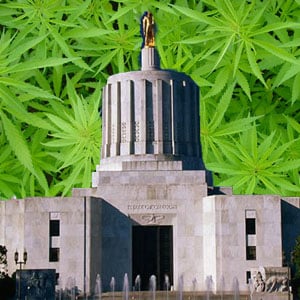 Can Oregon Medical Marijuana Growers Be Reimbursed For Expenses From Patients They Aren’t Registered With?
Can Oregon Medical Marijuana Growers Be Reimbursed For Expenses From Patients They Aren’t Registered With?
The Oregon Medical Marijuana Act (OMMA) has a provision in the law that allows medical marijuana growers to be reimbursed by medical marijuana patients for the cost of ‘supplies’ and utilities. This provision is what many medical marijuana distributors rely on when they conduct cash sales for medical marijuana in Oregon. Whether they are called a medical marijuana dispensary, or a collective, or a club, or a ‘fill in the blank,’ the nexus of their legal argument is that Oregon law allows the medical marijuana grower to be reimbursed for the direct costs incurred with growing the medical marijuana.
I wrote an article ‘Are Oregon Medical Marijuana ‘Dispensaries’ Legal‘ if you would like more information on the conversation revolving around the reimbursement of medical marijuana growers in Oregon. Another facet of the overall argument seems to be popping up on forums, e-mail groups, and Facebook in regards to reimbursing the medical marijuana grower. Can growers be reimbursed by patients that they are not the primary grower for? So for instance a medical marijuana grower has excess medicine, takes it to the local dispensary, the dispensary sells the medical marijuana on behalf of the grower, and reimburses the grower after the sell. For a long time that has been assumed to be OK, but there’s a new argument by Oregon law enforcement that basically says the grower can only be reimbursed by their patients, and their patients only.
This would put a huge crimp on just about every medical marijuana storefront in Oregon, since they are almost all operating on the assumption that as long as the grower is reimbursed, it’s all legal. According to law enforcement, the only way a medical marijuana storefront could be legal is if the grower ran the place, and only sold to their patients, which are limited to four in Oregon. I don’t know of any storefront structured medical marijuana business in Oregon that would fit into that narrow of operating parameters. The only model that I have seen that would work in that scenario is a grower co-op, Saturday market type structure. I’ve heard of those popping up where medical marijuana growers rent a table and sell to patients. However, even that model wouldn’t be completely legal under law enforcement interpretations if the table operator sold to a patient they were not the primary grower for.
At the end of the day, it’s going to take someone getting busted by law enforcement, law enforcement trying this argument in court, and the argument itself would then have to be appealed through the various levels of the Oregon court system until there was an end all ruling by the Oregon Supreme Court on the matter. In the meantime, law enforcement in any of the 36 counties in Oregon could take this narrow view on medical marijuana enforcement and shut down every storefront access point in Oregon. As someone said on an e-mail group I’m a member of, no one is telling medical marijuana dispensary operators to close down, but be advised that this is becoming a trend. It started in Washington County, Oregon and is starting to spread to other counties where there are overzealous sheriffs.
Below is the main part of the Oregon Revised Statutes that would be reviewed by court Justices to determine the legality of medical marijuana grower reimbursements:
475.304 (7) A registry identification cardholder or the designated primary caregiver of the cardholder may reimburse the person responsible for a marijuana grow site for the costs of supplies and utilities associated with the production of marijuana for the registry identification cardholder. No other costs associated with the production of marijuana for the registry identification cardholder, including the cost of labor, may be reimbursed. [2005 c.822 §8; 2007 c.573 §2; 2009 c.595 §966]
When I see words like ‘the person’ and not ‘the patient’s primary grower’ it leaves me to believe that the narrow interpretation law enforcement takes is incorrect. The wording says ‘the production of marijuana for the registry identification cardholder’ which might hint that the patient can only reimburse their primary grower, but it’s far from clear. I don’t see how someone couldn’t just as easily interpret the above passage to say that medical marijuana patients can reimburse ‘the person responsible for a marijuana grow site.’
If medical marijuana patients were barred from reimbursing other growers, wouldn’t the language of the statute be something more like:
A registry identification cardholder or the designated primary caregiver of the cardholder may reimburse the primary person responsible for the registry identification cardholder’s marijuana grow site for the costs of supplies and utilities associated with the production of marijuana for the registry identification cardholder.
The law clearly refers to the patient, as well as the patient’s caretaker, yet the same language is absent in the law when it comes to the medical marijuana grower. Why refer to ‘the person’ instead of keeping with the same language, unless the provision was designed to cover patients reimbursing other growers? The intent of the program was to have people helping people, without the state providing medical marijuana, so I think my interpretation will pass the ‘creators intent’ test.
What do readers think? I’d imagine most, if not all of you, just think that medical marijuana dispensaries should be legal in Oregon regardless. If we get an initiative passed this election, you will get your wish, and this article will be a moot point.



























